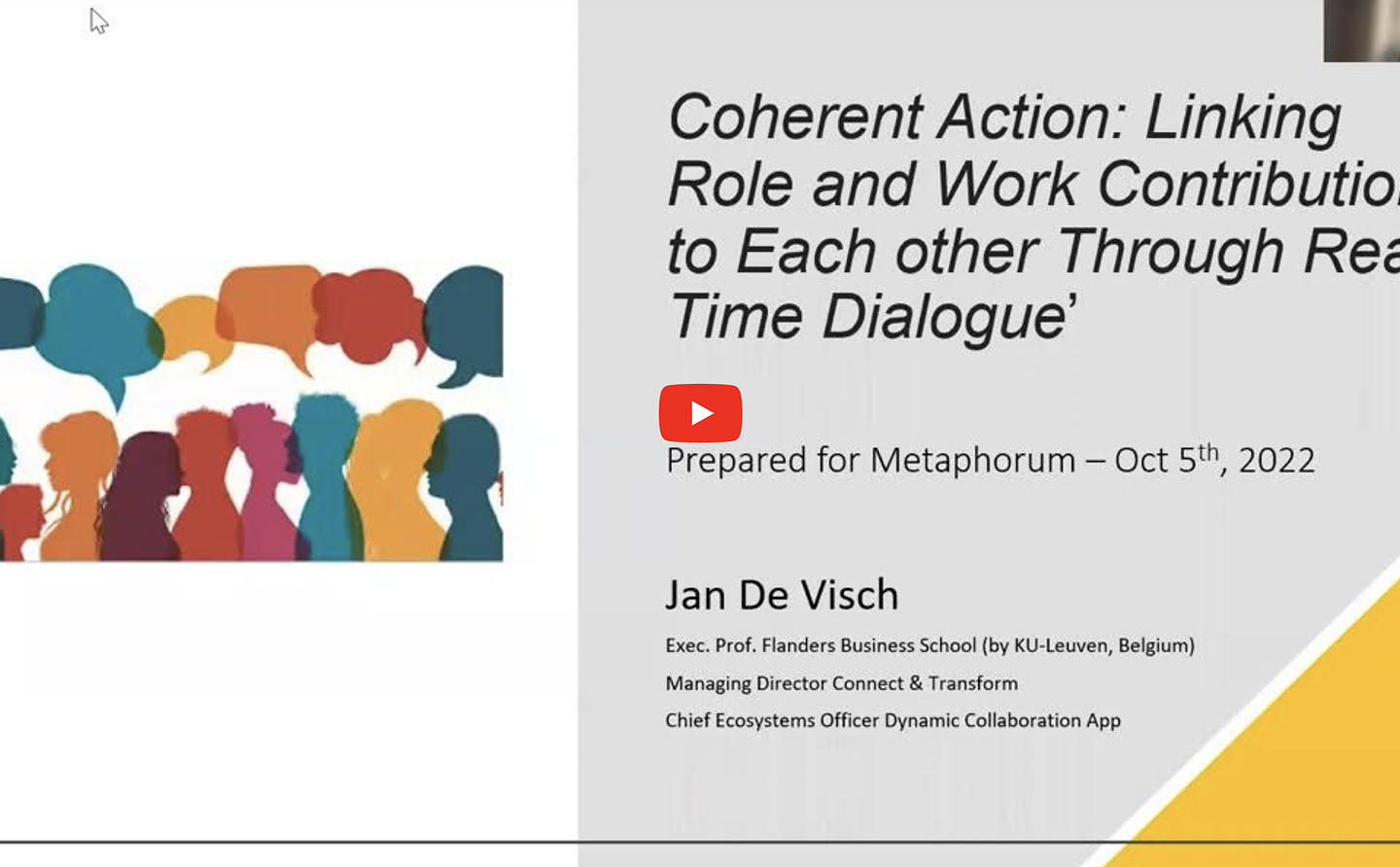
The session focuses on the dialogical dimension of collaborative action. It is argued that within each of the five systems of Stafford Beer, collaborative coherence is characterized by asymmetry. Every team experience downward momentum, which pushes destabilization away to the familiar and unambiguous, while upward momentum develops further, tests, and supplements new ideas. An oscillation toward and away from important focal ideas is seen as a constituent of how coherent action arises: there is a continuous dance between upward and downward dynamics. Finally, the session proposes ways to facilitate and enhance dialogue processes to develop real co-intelligence.
The ideas build on the best scientific research on individual, team, and organizational development. The findings reveal the relationship between system design complexity (which differs depending on the stratification level) and how individuals interpret those challenges. Perspective-taking determines how Stafford Beer’s five systems unfold in practice. Differences in perspective-taking determine how collaborative thinking in the designed systems occurs practically and with or without breadth and depth. Jan will illustrate the dynamics with two examples from actual recent organizational development projects.
Speaker Bio

Jan is an Exec. Professor Organizational and Human Capital Management at the Entrepreneurial MBA at Flanders Business School (by Catholic University Leuven), since 2004. He does applied research on the relationship between dialogical practices, collaborative structures, and collaborative intelligence in organizations.
His recent publications (books based on research, full overview of 115 articles and 11 books available on demand) include several recent books on Dynamic Collaboration, Self-organization, and Collaborative Intelligence (2018 -2022). He is the founder and managing director of Connect & Transform BVBA (Belgium), since 2000 (www.connecttransform.be); Co-founder and managing partner of Making Strategy Deliver (USA, Florida), since 2011 (www.makingstrategydeliver.com); Co-Founder & Chief Ecosystem Officer Dynamic Collaboration App (since 2018) (http://dynamiccollaboration.app/) .
Jan is the President of the Belgian Chapter of the “Systems & Complexity in Organizations” network (since 2019), and Board Member of several international research groups (Canada, USA). He was President of the Board for ‘De Beitel’, social economy company, (2003-2010); Board member of the Flemish Employers Association (region Antwerp-Mechelen) (www.etion.be) (2000-2010); and Honorary Board Member of Metena (Think thank of entrepreneurs in Flanders) (www.etion.be) (2005-2009). Jan holds a master’s in psychology from the Catholic University in Leuven and other postgraduate degrees in management, corporate governance and Corporate social responsibility (CSR), Executive remuneration (Vlerick Management School, 2002) He has several certifications in process & change facilitation tools.
Jan De Visch built his career in Human Resources, as Human Resources Director of De Vaderlandsche, the Group Franki-Van Roey and Sanoma Magazines. In each case he developed a Human Resources strategy that supported and reinforced the growth strategy of the company. He was involved in several integrations and restructuring processes from a corporate role. He has focused recently on Organisational development and complex transition coaching are the main themes through which Jan helps companies to realize their full potential. In particular, in facilitating Business Model transitions, Organisational culture and change, Co-creation, City Transition Projects, Organisation Design, cross cultural issues and diversity, business strategy and education, and coaching complexity.
E-mail : Jan@connecttransform.be
